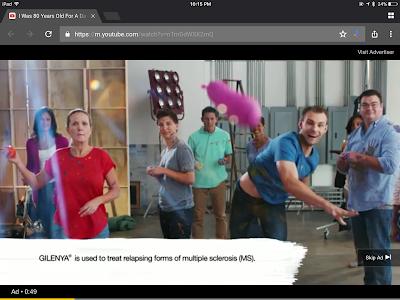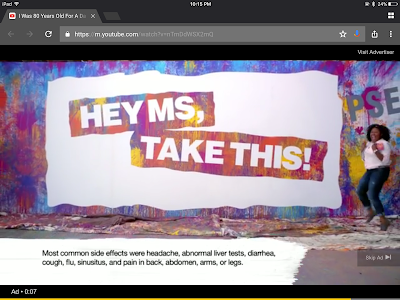Sontag
states that “one never understands anything from a photograph,” which is partially
true in that it is impossible to capture two sides of an argument. For
instance, nature photos always show two extremes: the biodiversity and unique lifeforms
that inhabit Earth and the effects of human activities on the environment.
There is never a balance between beauty and destruction, compassion and
cruelty, etc. However, photographs—especially a collection of photos—hold the
power to reveal the changes in a person throughout time. Writing may be able to
provide a similar truth, but it is often to verbose to directly get to the
point and cover a vast expanse of time.
Although
I am too embarrassed to upload my baby photo, it shows me next to a karaoke
machine surrounded by stuffed animals. According to my parents, I loved to
sing. Yes, I know it contrasts completely from my current disposition, but this
photo simply demonstrates the vast changes society has had on me. Before, I was
a vivacious toddler, not caring about what other people said. Now, that ability
of spontaneity is completely gone. I mean the fact that I am too afraid to post
my baby photo simply shows how much I changed. I do not know exactly when, but
I decided to become serious to live up to expectations that I placed on myself.
The stuffed animals are replaced with AP review books and the karaoke machine
is nowhere in sight. For the sake of being taken seriously, I have succumbed a
great deal to societal pressures—that the lifestyle and personality of a
toddler is too frivolous.
The
photo was taken from my old house in Raleigh, North Carolina. That home
represented the freedom of expression and exploration. I fell in love with
nature because I was able to go into the big forest behind my backyard—which
has now been almost completely cut down. I was able to connect with the land
and to my surroundings. Now, my home in Troy, Michigan represents a change: the
need to find something socially acceptable. There is no more forest to foster
intellectual growth; I am supplied with artificial textbooks to learn. Even the
extreme weather has trapped me in this home. In a way, I still find myself
disconnected with this place.
Looking
back at my photos brings nostalgia, evoking a stronger emotion than what simply
reading writing can supply. But above all, photos hold a unique power to show
change and allow for self-reflection. The image of that karaoke machine floods my
brain with so many memories that words are incapable of doing; I would never be
able to admit my still strong attachment with North Carolina without the sight
of a past that I still cherish deep insight my heart.

















